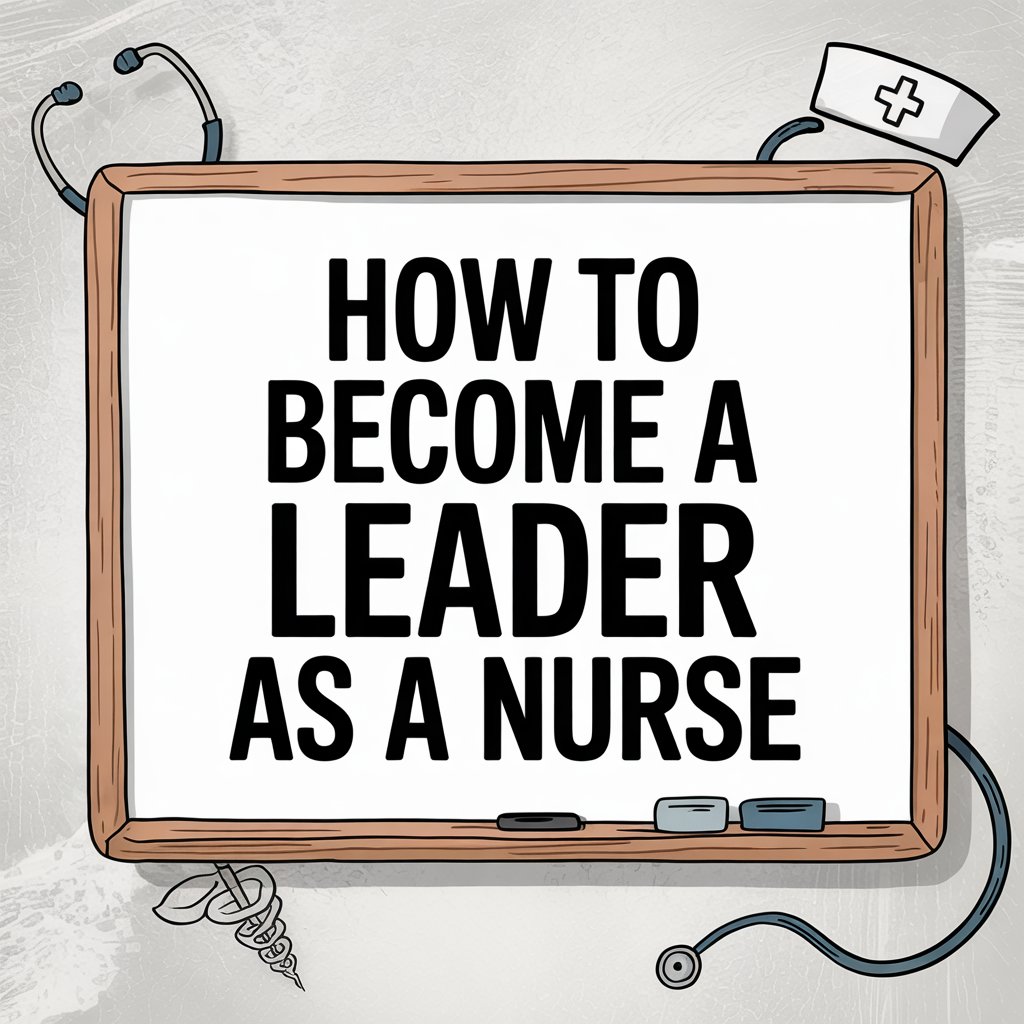How to Become a Leader as a Nurse

To become a nurse includes a mixture of education, experience, personal development and strategic career decisions. The leadership in nursing is crucial because it improves the quality of patient care and influences the development of health guidelines and the further development of the profession. Here is a comprehensive guide that you become a nurse.
1. Follow further training and certification
The basis of nursing management is a solid educational background. A Bachelor of Science in Nursing (BSN) is essential, and an advanced conclusion like a Master of Science in Nursing (MSN) or a doctor of nursing practice (DNP) can significantly improve your leadership potential. These programs often include course work in the leadership, management, health guidelines and advanced clinical skills. In addition, the preservation of certifications in specialized areas (e.g. nurse management, clinical nurse leader) can continue to validate your expertise and your willingness for leadership roles.
2. Collect diverse clinical experience
Experience is a critical part of nursing. Working in various clinical environments – such as hospitals, outpatient clinics, community health centers and special areas – their perspective and their understanding of various patient care. This experience in experience improves clinical skills and improves the skills for problem solving and adaptability, which are important features of effective managers.
3. Develop strong communication skills
Effective communication is the cornerstone of leadership in nursing. Managers must be able to give clear instructions, to give constructive feedback and to enter patients and employees. Through the development of active skills, empathy and resolution can improve your interactions with colleagues, patients and other members of the health professions. Participation in workshops or courses on communication or the various management styles in nursing can be an advantage.
4 .. Care emotional intelligence
Emotional intelligence (egg) includes understanding and management of your emotions and others. A high egg is associated with better teamwork, improved patient care and reduced stress among employees. Managers with strong emotional intelligence can navigate complex interpersonal dynamics, inspire and motivate their team and create a positive work environment. Reflective practices, mindfulness and feedback from peers can help improve the egg.
5. Find mentoring and networking opportunities
Mentoring is invaluable on the journey to the tour. Experienced mentors can give instructions, share insights and offer support while navigating your career. In addition, networking with other specialists in nursing and health care can open doors for new opportunities, offer different perspectives and help them to stay up to date via industry trends. Take part in conferences, start professional organizations and contribute to management forums to build a robust professional network.
6. Keep in dealing with education and lifelong learning
Healthcare is a dynamic area and it is important to keep the latest developments up to date. Activate the training through workshops, seminars, online courses and professional magazines. Lifelong learning ensures that you are familiar with progress in patient care, technology and health guidelines.
7. Demonstration of leadership in daily practice
Leadership is not limited to formal roles; It can be demonstrated in daily training. Take the initiative at your workplace, be it by leading a project, improving a process or looking after a new nurse. If you show a proactive approach and commitment to excellence, you can distinguish as a natural guide.
8. Accept change and innovation
Managers in nursing must be adaptable and open to changes. Health care continues to develop, with regular new treatments, technologies and care models appear. Accept innovations by staying curious, experimenting with new ideas and encouraging your team to do the same. To be a champion for changes can position it as a future -oriented guide.
9. Lawyer for nurses and patients
Effective nurses for the needs and rights of patients and nursing staff. This includes participation in the development of political development, in which legal efforts and ensuring that the voices of nurses and patients are heard in decision -making processes. A strong advocacy can lead to improvements in patient care, working conditions and health systems as a whole.
10. Reflect and evaluate your tour trip
Regular self -reflection and evaluation are of crucial importance for personal and professional growth. Evaluate your leadership and areas that need to be improved, obtain feedback from colleagues and determine goals for your development. Reflection helps you to coordinate with your values and goals and ensure that you continue to grow as an effective guide.
Diploma
As a nurse as a nurse, a diverse approach, education, experience, personal development and commitment to excellence requires. By introducing these strategies, nurses can develop the skills and attributes that are necessary to effectively lead, to inspire others and to have a meaningful influence on health care.





